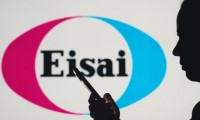-
2023 Mid-Year Review
- Source: drugdu
- 200
- July 15, 2023
-
Urotronic Wins FDA Approval to challenge Boston Scientific, Teleflex for Prostate Market
- Source: drugdu
- 120
- July 15, 2023
-
Takeda Withdraws Dengue Vaccine Application After FDA Request for More Data
- Source: drugdu
- 124
- July 14, 2023
-
FDA Clears More Chemotherapy Imports from China’s Qilu Amid Shortage of Key Cancer Meds
- Source: drugdu
- 103
- July 14, 2023
-
FDA Rejects Xspray’s Would-Be Rival to Bristol Myers’ Sprycel on Dosing, Manufacturing Concerns
- Source: drugdu
- 205
- July 13, 2023
-
FDA Puts Clinical Hold on Hemogenyx’s CAR-T AML Therapy
- Source: drugdu
- 144
- July 12, 2023
-
CMS Expands Medicare Coverage for Leqembi After FDA Traditional Approval
- Source: drugdu
- 131
- July 11, 2023
-
Astellas Gains FDA Priority Review for Gastric Cancer Therapy BLA
- Source: drugdu
- 121
- July 11, 2023
-
FDA grants traditional approval for Eisai-Biogen’s Alzheimer’s therapy
- Source: drugdu
- 109
- July 9, 2023
-
FDA grants orphan drug designation to ImPact’s focal cancer therapy
- Source: drugdu
- 105
- July 8, 2023
your submission has already been received.
OK
Subscribe
Please enter a valid Email address!
Submit
The most relevant industry news & insight will be sent to you every two weeks.













